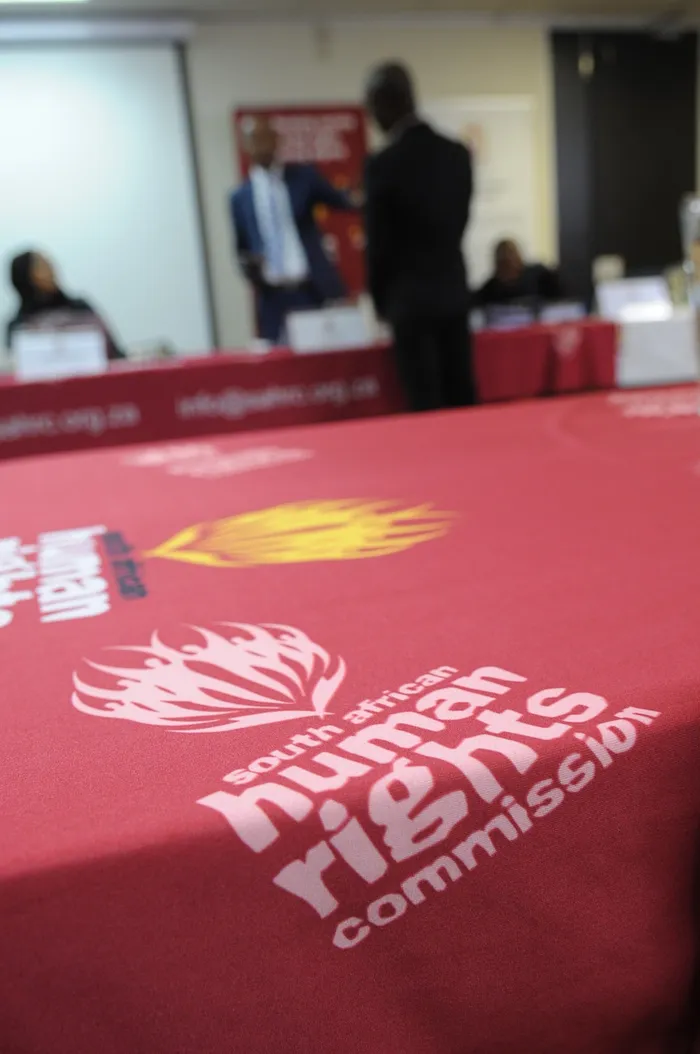Western Cape has most racism complaints in SA – SAHRC

South African Human Rights Commission says the Western Cape has the highest number of reported incidents of racism in the country. Picture: KAREN SANDISON
More incidents of racism have been reported in the Western Cape than in any other province.
This according to statistics from the South African Human Rights Commission (SAHRC).
The Western Cape received 123 racism-related complaints from April 2022 to January 2023. KwaZulu-Natal followed with 78 complaints and Gauteng came in third with 73.
The provincial manager at the SAHRC, Matthew du Plessis, said of the 123 reported incidents in the province, 43 remained under investigation. He said other cases were resolved before the current total was reached.
“Most of such cases are resolved through mediation between the parties, and a small number are addressed through Equality Court action. The commission does not ordinarily subpoena people to appear before it in respect of such cases, and rather uses mediation or courts to resolve the disputes,” he said.
Du Plessis said most of those cases were filed under “hate speech” and did not involve a violation of the right to equality in most instances.
“It is a violation of dignity, primarily discrimination, which is the actual violation of the right to equality, and is a separate violation under section 9 of the Equality Act. The Western Cape rarely gets any of those cases.
“When we do get discrimination cases, such as the Brackenfell School matter or the Schweizer-Reneke case, we usually find that there was actually no discrimination. We do not investigate crimen injuria, as that is a criminal matter and not in our jurisdiction.
“Most racism that we investigate (and remember, racism isn’t actually a legal term – the words ‘racist’ and ‘racism’ do not even appear in the Equality Act, the SAHRC Act or even the Constitution itself) manifests as hate speech on the prohibited ground of race, not discriminatory actions and policies that constitute legally defined discrimination under section 9 of the Constitution and section 9 of the Equality Act,” he said.
Du Plessis said the perception that the Western Cape SAHRC offices received many complaints of racism was unfounded.
These latest figures are not the first to depict the province in such a light. According to the 2020/21 SAHRC annual trends analysis report, the Western Cape had the lowest number of finalised complaints. In the same period, it had the highest number of cases carried over.
Du Plessis said the alleged racist incident that took place at Hank’s Olde Irish in December was one of the 43 cases that were still under investigation.
William Booth, the Hank’s Olde Irish brothers’ lawyer, confirmed that they had provided a response to the commission but were displeased by the delay in resolving the matter. They denied the incident was a racist attack.
“We have responded and stated categorically that this is not a racist issue pertaining to our clients.The Human Rights Commission have not yet resolved their investigation despite the fact that it has taken an unacceptable lengthy period of time to resolve.This delay is extremely prejudicial to our clients,” he said.
The head of sustained dialogues at the Institute for Justice and Reconciliation, Felicity Harrison, said the statistics on reported racist incidents in the province came as no surprise.
“In the work that we have done, the Western Cape has had continuing problems between and within racial groups that have gone largely unaddressed. Antagonism both within race groups and between them is continuing; a trend that is carried over into our attitude towards foreign nationals from Africa. Spatial apartheid and the continuing inequality which perpetuates apartheid cleavages continue to exist.
“The Western Cape highlights issues that are prevalent within our whole society – it is not an outlier, but rather an indication of the problems which continue to exist throughout the country,” she said.
Khanya Gqada, an attorney, said there was an ongoing debate that racism should be criminalised.
“The only close definition of racism in the Constitution is section 9. Other than that, there is no clear definition of it in our Constitution. Racism is also not a criminal offence and that is why there are people in the Western Cape who continue to be racist,” he said.
Advocate Tumi Rantoa said the South African Constitution was one of the most highly lauded and progressive constitutions in the world, and that there was nothing lacking in the Constitution that contributed to people being racist.
“The issue here is privilege, not a flawed Constitution. When a certain race assumes supremacy, it then begins issues such as racism. The issue of inequality runs deep in South African society. The government should do more to equalise black and white people,” she said.
Related Topics: